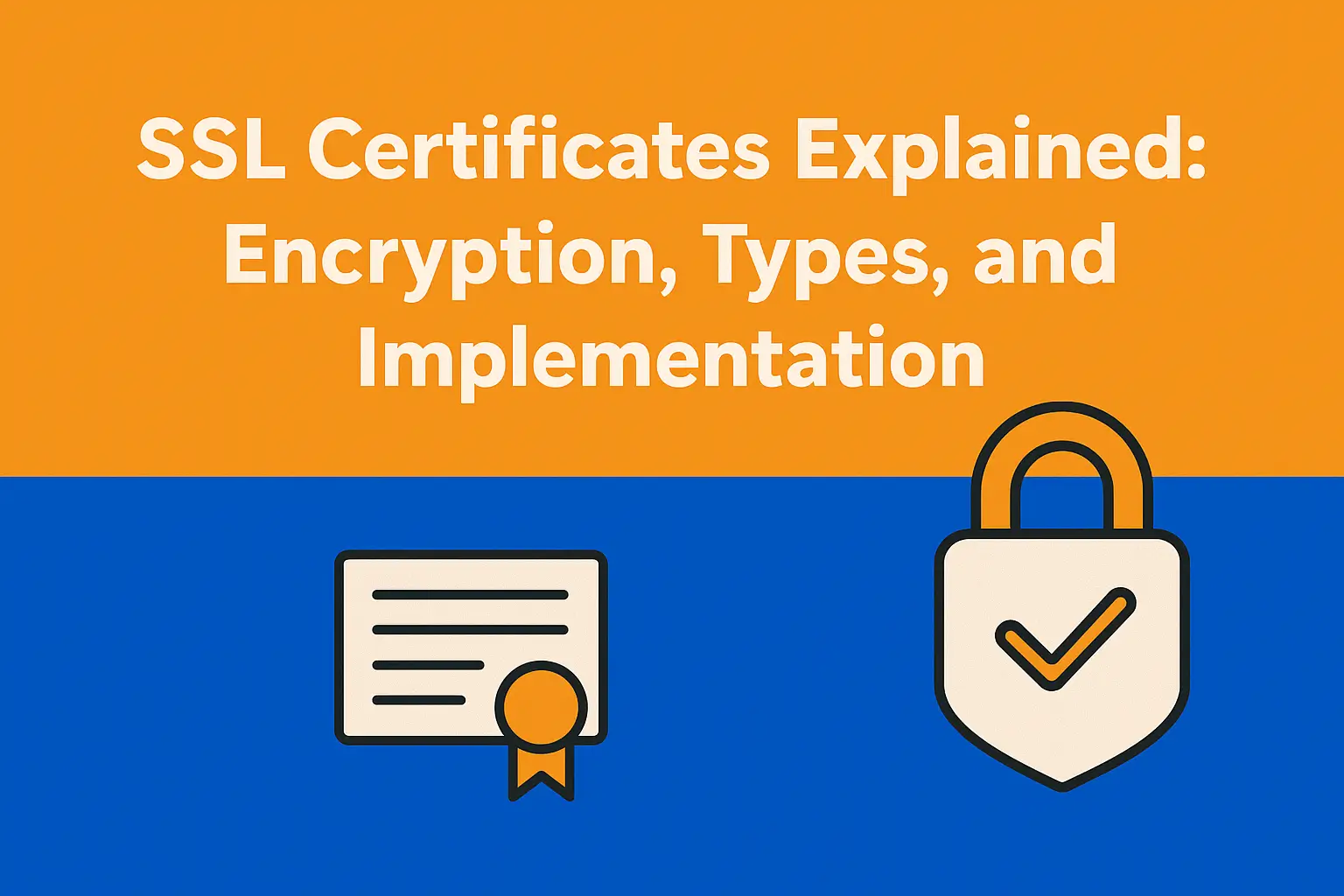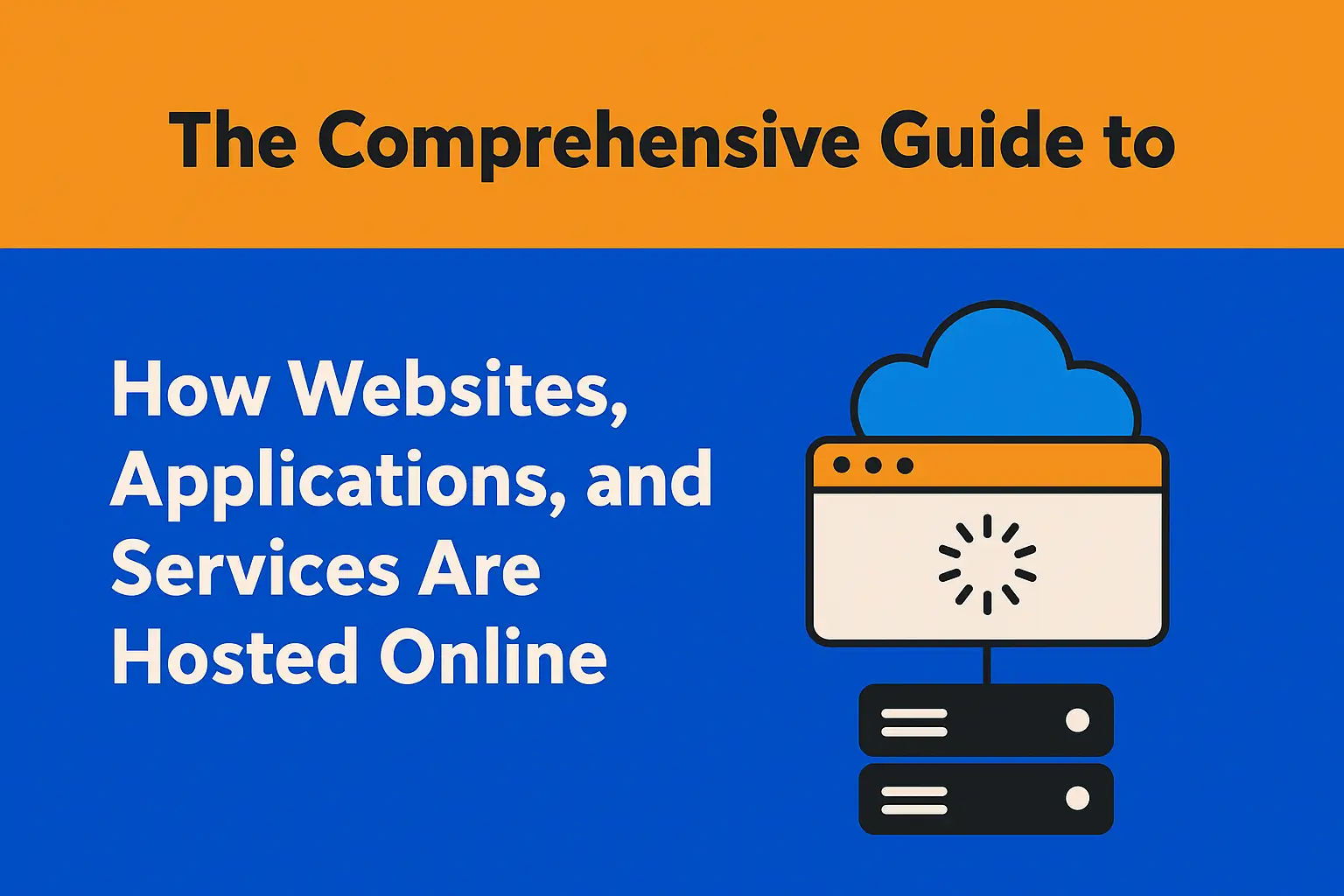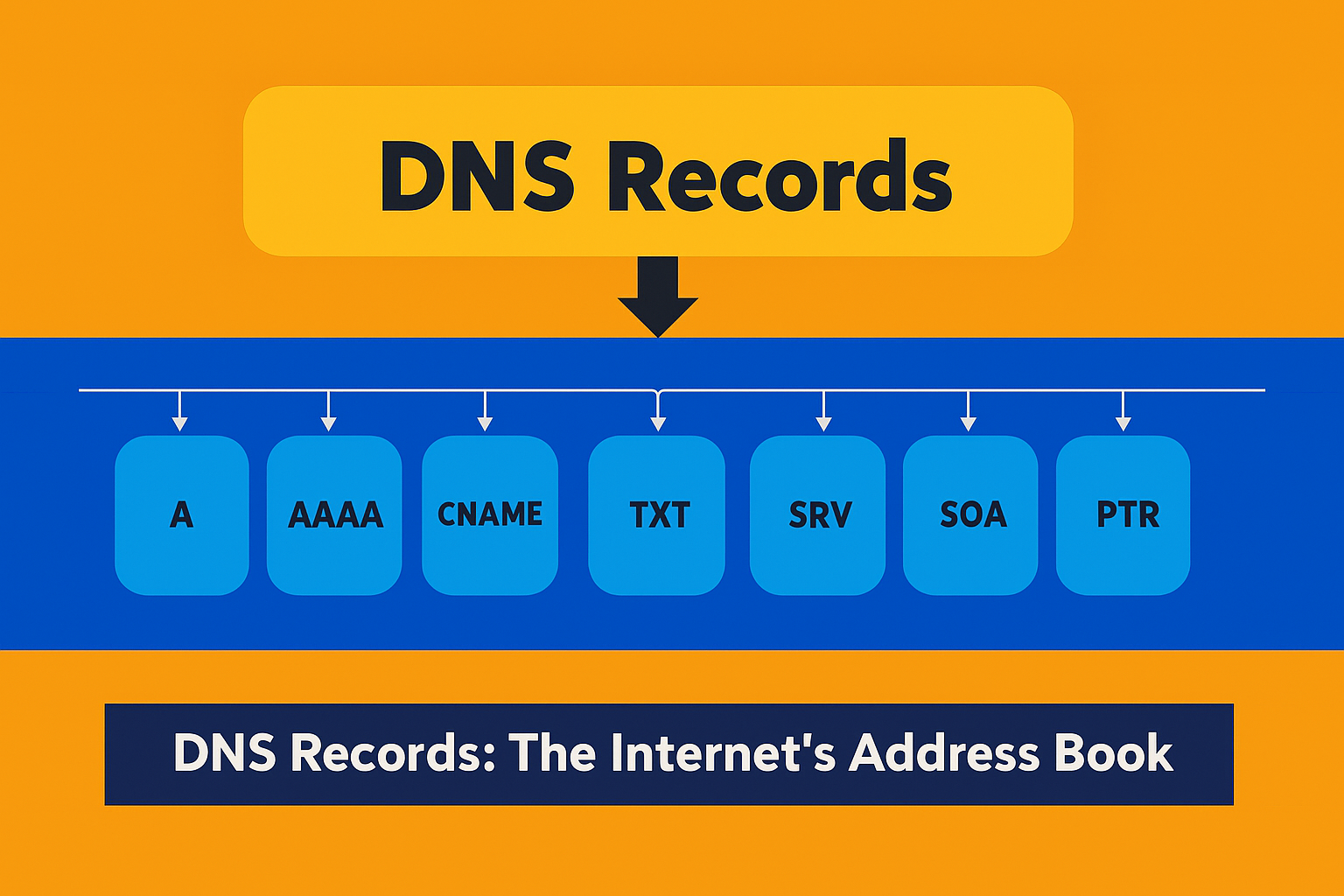
Introduction to Web Hosting Services
Web hosting services are a fundamental aspect of establishing and maintaining an online presence. When individuals or businesses create a website, their files need to be stored on a server so that they can be accessed by users on the internet. Web hosting services provide the technologies and server space needed to host these files, making websites accessible to users worldwide. The importance of choosing an appropriate web hosting service cannot be overstated, as it significantly impacts a website’s performance, security, and reliability.
A well-chosen web hosting provider ensures that a website runs efficiently with minimal downtime and fast loading speeds, both of which are crucial for maintaining user satisfaction and search engine rankings. Additionally, robust security measures provided by the hosting service protect the site from cyber threats and data breaches, ensuring the safety of user information. Reliable technical support is another critical aspect, where a competent hosting provider offers timely assistance to resolve issues that may arise.
In this comparison guide, we will take an in-depth look at three prominent web hosting providers: Bluehost, HostGator, and GoDaddy. Each of these providers offers a range of hosting plans and features designed to cater to different needs, whether for personal blogs, small businesses, or larger enterprises. By evaluating their offerings, we aim to equip you with the necessary insights to make an informed decision that aligns with your specific requirements.
Company Backgrounds
Bluehost, HostGator, and GoDaddy are among the most prominent names in the web hosting industry, each with their unique histories and contributions to the market. Understanding their backgrounds can provide valuable insight into their reliability and service quality.
Bluehost has been a major player in the web hosting sphere since its inception in 2003. Over the years, it has built a strong reputation for providing user-friendly and robust web hosting solutions. Bluehost is particularly noted for its comprehensive services tailored to WordPress, earning an endorsement from WordPress.org itself. With millions of websites hosted on their platform, Bluehost continues to grow, backed by innovative solutions and a commitment to customer satisfaction.
HostGator, founded in 2002, has also made significant strides in the web hosting industry. Known for its extensive range of hosting options, including shared, VPS, and dedicated hosting, HostGator has cemented its position as a versatile and reliable provider. The company prides itself on its scalability, offering services suitable for both small businesses and large enterprises. HostGator’s leadership in the market is underscored by its network of data centers and a strong focus on uptime and performance, making it a preferred choice for many website owners.
Founded in 1997, GoDaddy is one of the oldest and most recognizable names in web hosting and domain registration. Over the decades, GoDaddy has evolved from a domain registrar to a comprehensive provider of web services, including web hosting, website building, and online marketing tools. Highlighted by its expansive market presence and trademark advertising campaigns, GoDaddy has achieved numerous milestones, such as reaching over 20 million customers worldwide. Its longstanding reputation and wide array of services make GoDaddy a formidable competitor in the web hosting industry.
In summary, Bluehost, HostGator, and GoDaddy have each established significant presences in the web hosting market through years of dedicated service and continuous improvement. Their enduring reputations and achievements reflect their commitment to providing quality hosting solutions to a broad spectrum of users.
Pricing Plans and Options
When comparing the pricing plans and options across Bluehost, HostGator, and GoDaddy, several critical factors come into play. Each provider has its unique pricing structure, inclusive of various hosting tiers such as shared, VPS, and dedicated hosting, alongside introductory offers, renewal rates, and additional costs. A detailed examination reveals distinct advantages and shortcomings for different user needs.
Bluehost offers competitive introductory pricing, particularly for their shared hosting plans, starting as low as $2.95 per month. However, it’s essential to note that renewal rates can increase significantly, with prices rising to $8.99 per month. Their VPS hosting plans start at $18.99 per month, while dedicated hosting begins at $79.99 per month. Additional costs may include domain registration fees and SSL certificates, but these often come bundled with higher-tier plans.
HostGator’s pricing is similarly structured, with shared hosting plans starting at $2.75 per month for the introductory period, rising to $6.95 upon renewal. VPS hosting prices start at $19.95 per month, and dedicated hosting begins at $89.98 monthly. HostGator offers extensive promotional deals and frequent discounts. Additional costs could include domain registration and SSL certificates, though some plans may feature these benefits.
GoDaddy tends to have a broader range of pricing options. Initial prices for shared hosting start at $5.99 per month, with renewal rates reaching $8.99 per month. Their VPS hosting plans start at $4.99 per month, making them the most affordable in this category among the three providers, while dedicated hosting plans start at $89.99 per month. GoDaddy is well-known for its aggressive introductory pricing but can have higher renewal rates. Additional fees might include domain registration and SSL certificates, often offered as part of higher-tier plans.
In terms of value, Bluehost is particularly advantageous for beginners due to its attractive introductory offers and user-friendly features. HostGator provides substantial promotional pricing, making it a solid contender for those seeking value and flexibility. GoDaddy’s extensive range of plans might cater to a broader spectrum of users, especially those needing affordable VPS hosting.
Performance and Uptime
When it comes to evaluating web hosting services, performance and uptime are critical factors that determine the reliability and efficiency of your website hosting experience. Bluehost, HostGator, and GoDaddy each offer distinct performance metrics and uptime guarantees, which we shall delve into to provide a comprehensive analysis.
Bluehost is renowned for its commitment to performance, boasting an average uptime of 99.98% as verified by numerous independent performance tests. The company uses advanced technologies such as SSD storage and the Cloudflare Content Delivery Network (CDN), ensuring fast load times and excellent server response rates averaging 405ms. This establishes Bluehost as a performant choice for those who prioritize uptime and speed.
HostGator, on the other hand, guarantees a slightly lower uptime of 99.97% but compensates with reliable server infrastructure. Independent tests indicate an average server response time of 425ms. HostGator implements a combination of global data centers and an intuitive caching system that helps maintain consistency in performance across various geographies, offering seamless user experiences worldwide.
GoDaddy promises an extensive uptime of 99.97%, aligning it closely with HostGator. The performance measurements for GoDaddy demonstrate a server response time averaging 520ms. With a focus on small to mid-sized businesses, GoDaddy enhances reliability through redundant data centers and a global load balancing mechanism. This configuration ensures optimal speeds and minimal downtime, making it a suitable option for commerce and service-based websites.
While all three providers offer commendable uptime guarantees and have effective mechanisms to ensure consistent performance, Bluehost’s slightly superior server response rate places it marginally above HostGator and GoDaddy in terms of sheer speed. However, each service has unique features designed to optimize performance based on the user’s specific needs and target audience distribution.
Customer Support and Service
When selecting a web hosting service, customer support is a critical factor to consider. Efficient, accessible, and responsive support can make the difference between a seamless user experience and a frustrating one. This section delves into the customer support offerings of Bluehost, HostGator, and GoDaddy, examining available support channels, operating hours, and the overall quality of service as reported by users.
Bluehost: Known for its robust support system, Bluehost provides 24/7 support through three main channels: phone, live chat, and email. The company’s support team is regarded for its quick responsiveness and technical expertise. Most customers report positive experiences, highlighting the team’s ability to resolve issues efficiently. Additionally, Bluehost offers an extensive knowledge base, video tutorials, and FAQs to assist users in troubleshooting common problems independently.
HostGator: Matching Bluehost in availability, HostGator’s support team also operates 24/7, accessible via phone, live chat, and email. HostGator prides itself on its customer-centric approach, and many clients commend the support staff’s professionalism and helpfulness. The prompt response time is frequently mentioned in customer reviews. Furthermore, HostGator provides a comprehensive set of resources, including a detailed knowledge base, tutorials, and a community forum, to empower users to find solutions on their own.
GoDaddy: GoDaddy offers customer support around the clock through multiple channels, including phone, live chat, and email. Its extensive support network spans globally, ensuring that assistance is available in different regions and languages. Reviews on GoDaddy’s support services are somewhat mixed; while many users praise the immediate availability and dedication of the support staff, others have cited instances of delayed responses and technical misunderstandings. Nonetheless, GoDaddy supplements its live support with a thorough help center, blog articles, and a community forum, aimed at addressing both novice and advanced queries.
To summarize, while Bluehost, HostGator, and GoDaddy all provide 24/7 customer support, the quality and user satisfaction vary slightly. Bluehost and HostGator consistently receive high marks for responsiveness and expertise, while GoDaddy’s support experiences fluctuate more significantly among users. It’s advisable for potential customers to consider their specific support needs and review detailed customer testimonials when making their choice of a web hosting provider.
Features and Tools
When selecting a web hosting service, the range of features and tools available is a significant factor in making an informed choice. Bluehost, HostGator, and GoDaddy each present a distinct set of features tailored to various user needs.
Starting with user interfaces, each hosting provider offers an intuitive management dashboard. Bluehost’s dashboard is widely praised for its simplicity and ease of navigation, making it ideal for beginners. It integrates seamlessly with the Bluehost Marketplace, where users can find additional tools and services. HostGator’s interface, known as the Gator Dashboard, is similarly user-friendly, with drag-and-drop functionality that streamlines website management tasks. GoDaddy, on the other hand, has revamped its dashboard to emphasize clarity and user experience, providing easy access to their suite of tools.
Website builders are another critical component. Bluehost includes a custom site builder with templates optimized for different types of web projects. HostGator offers the Gator Website Builder, featuring drag-and-drop capabilities and mobile-responsive designs. GoDaddy also has a robust website builder with Artificial Design Intelligence, which customizes templates based on user input for a more personalized website.
When it comes to CMS integrations, all three providers support popular platforms such as WordPress, Joomla, and Drupal. Bluehost is particularly renowned for its WordPress hosting, offering a seamless installation process and specific optimizations for WordPress sites. HostGator and GoDaddy also provide robust WordPress support, including one-click installations and managed WordPress hosting services.
Email hosting is another area where these providers excel. Bluehost offers free email accounts with its hosting plans, along with an intuitive email management tool. HostGator provides unlimited email accounts and integrates well with third-party email clients. Similarly, GoDaddy’s email hosting includes professional email addresses and efficient email management tools.
Domain management and security features are crucial for any web hosting service. Bluehost includes free SSL certificates and domain privacy for added security. HostGator offers free SSL and advanced security tools such as CodeGuard and SiteLock. GoDaddy stands out with its robust security solutions, including daily malware scans and an SSL certificate to ensure secure transactions and data protection.
Security and Backup
In an increasingly digital world, the security of web hosting services has never been more crucial. When comparing Bluehost, HostGator, and GoDaddy, it’s essential to examine their security measures and backup solutions closely to ensure data integrity and protection.
Bluehost emphasizes robust security through a variety of features. The company offers free SSL certificates, ensuring secure and encrypted connections for websites. Furthermore, DDoS protection is a cornerstone of their security, mitigating potential attacks that could disrupt services. Malware scanning and mitigation tools add an extra layer of defense, actively monitoring and neutralizing threats before they can cause harm. Backup solutions at Bluehost are user-friendly, with automatic daily, weekly, and monthly backups. Restoring data is straightforward, often just a few clicks away, making it a reliable choice for maintaining data integrity.
HostGator, on the other hand, also provides free SSL certificates, enhancing website security through encryption. Its proactive DDoS protection system is robust, safeguarding against potential disruptions. HostGator’s malware scanning feature is designed to regularly check for, and eliminate, any security threats. In terms of backup, HostGator includes weekly automatic backups, which can be accessed through the cPanel interface. The ease of restoration, however, may require more steps compared to Bluehost, but it remains a reliable option for data recovery.
Meanwhile, GoDaddy offers a comprehensive security suite that includes free SSL certificates and advanced DDoS protection. Their malware scanning and mitigation services are among the industry’s best, continuously monitoring for malicious activities. A standout feature is their website security tool that provides real-time alerts and immediate action against threats. GoDaddy also supports daily automatic backups with a simple restoration process, ensuring that data recovery is both efficient and effective.
In summary, while Bluehost, HostGator, and GoDaddy all present robust security measures and backup solutions, their implementation and ease of use vary. Bluehost’s approach is user-friendly and comprehensive, HostGator offers solid protection with slightly more complex restoration, and GoDaddy excels in proactive security measures and efficient data recovery processes. Each web hosting service provides dependable options, reassuring users of their websites’ security and data backup integrity.
Conclusion and Recommendations
Having meticulously compared Bluehost, HostGator, and GoDaddy on critical parameters such as pricing, performance, customer support, and scalability, we can distill some key insights that will aid you in making an informed decision. Each web hosting provider exhibits unique strengths that cater to different user profiles.
For bloggers and individuals starting small websites, Bluehost proves to be an excellent choice. Its user-friendly interface, coupled with a robust set of features, provides a hassle-free experience suitable for beginners. Additionally, its competitive pricing and integration options with WordPress make Bluehost a standout option for those in the blogging community.
When it comes to small businesses, HostGator offers a versatile and scalable solution. It boasts flexible pricing plans and an excellent array of tools that aid in business growth. Moreover, HostGator’s reliable uptime and responsive customer support ensure minimal disruption, making it a preferred choice for businesses that anticipate scaling up in the future.
For e-commerce sites and more resource-intensive websites, GoDaddy surfaces as the ideal candidate. Its extensive range of plans, robust security features, and high performance cater remarkably well to online stores that require higher data handling capacities and heightened security measures. GoDaddy’s comprehensive suite of tools also facilitates effective inventory and order management, enhancing the overall user experience for e-commerce site owners.
After a thorough analysis, it’s evident that there is no one-size-fits-all solution. Instead, the choice of web hosting provider hinges upon your specific needs and strategic goals. Evaluating the key aspects – from pricing and ease of use to performance and customer support – will allow you to select the provider that best aligns with your objectives.
Therefore, while Bluehost is lauded for its beginner-friendly setup, HostGator excels in serving small business needs, and GoDaddy stands out for its proficiency in handling e-commerce sites. Assess your requirements meticulously to identify the web hosting service that meets your criteria and will best support your online venture.





0 Comments